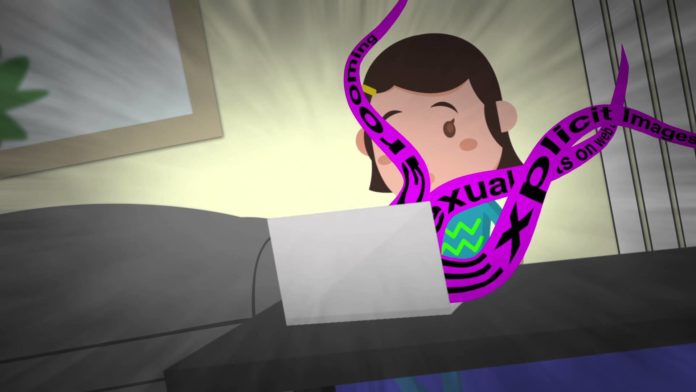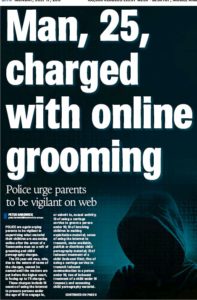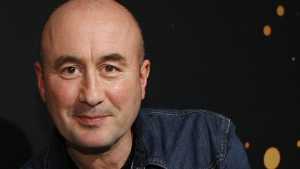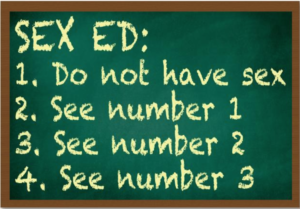
To protect and serve
 Again and again and again and again. One depraved animal after another, mollycoddled, pandered to, told off for being ever so naughty and then sent on their way.
Again and again and again and again. One depraved animal after another, mollycoddled, pandered to, told off for being ever so naughty and then sent on their way.
A trifling sentence, three, maybe four, years, half of it served before they’re free, free to reoffend, to ruin more lives, to get funnelled back through the system, back before the courts so that the whole pointless process can be repeated once more.
No deterrent, no punishment, just a temporary derailing, a brief hiatus in their reign of terror.
This is the price we pay for being a so-called ‘liberal’ country, a place where rehabilitation, not subjugation, is the preferred method of treatment. We believe they can be fixed, that, with the correct care and provision, these men can learn to control their impulses. And we believe it right up until the day they reoffend. We believe it right up until they destroy another child’s life, until they tear another family asunder simply because they can.
But, after a while, we stop believing, we realise that this can’t go on, that these men must be dealt with, and dealt with properly.
Such is the extent of this problem, we hardly bat an eyelid anymore. In the week just gone there’s been stories of a priest defiling young girls during their first confession, children abused while under the care of the HSE, and a member of the Child and Family Agency (Tusla) being investigated for possession of child pornography.
And that’s just a normal week.
None of those stories caused any great surprise or dismay, nor did the punishments handed down; a suspended sentence, six-and-a-half years, and a questioning, respectively. Meanwhile in America, a gymnastics’ coach is sentenced to 175 years for the systematic abuse of minors. In India, a law is passed permitting the death penalty for those found guilty of raping children.
But it’s different here, we’re civilised. And because of this, because of our refinement, our civilisation, our children live in constant danger.

On that day, as a result of their actions, the man in question was arrested by Gardaí, he was detained for a brief period of time and then released – and then photographed buying a new phone the following day, for what purposes one can only speculate.
Although only in operation since late January, CPA have posted many such videos, confronted many similar men, and garnered a lot of interest in the process. They have made their intentions clear, exposed potential predators, and warned those with predatory instincts that the Internet is not the breeding ground it once was.
Yet, what they haven’t managed to do, despite all their good work, is effect real change.
Discourse with the authorities has promised much but delivered little. Promises to follow up on cases have not been kept, information has been shared but not utilised, and in some cases their endeavours have been met with outright hostility.
The guards, while welcoming the assistance, already have their hands full, and without the proper legislation to charge these men, these paedophiles in waiting, there is little they can do. So they do what they always do; they haul the culprits in for questioning, give them a right good grilling, and then send them on their way, back to the Internet, back to work.
Because this is how we do things in this country.
Such is the paucity of resources there can really be no other way. Instead it’s left to groups like CPA, ordinary everyday civilians like you and I, to shoulder the burden. Do you think they enjoy doing what they do? Do you think they revel in the fame, the glory? Think again.
None of the members of CPA revealed their real names to me. While filming them, I was not permitted to shoot footage that might uncover their identities. They are secretive to a fault, almost paranoid, and with good reason.
Because they, more than anyone else, more even than the authorities, understand the true scale of this issue. They see it all day, every day; sordid behaviour, men, from all parts of the country, targeting underage children, grooming them, seducing them, doing whatever it takes to engineer a meeting.
I was afforded but a glimpse into the work they do, and that was more than enough. To read the chat-logs, the conversations between members of the group and these grim individuals, is to realise that this is work not for the faint-hearted.
But still they endure, unbowed, not in the least bit disheartened by a dysfunctional legal system, a system that renders much of their work obsolete as soon as it lands on its desk.

At the time of Creaven’s capture, I questioned the motives of Predator Exposure, admitting that I found footage of them confronting the 55-year-old somewhat unsettling. But in retrospect one can fully understand their methods, their breathless belligerence.
They’d seen what Creaven was capable of, they knew his intentions, his reasons for travelling from Dublin to Leeds. They knew that, given the chance, this man would have molested and abused a 13-year-old girl, and that if he hadn’t done it this time, there would have been another time, and a time after that.
Under the circumstances, a little jubilation was to be expected; they didn’t know it at the time, but they had potentially saved the lives of not just a number of children, but those children’s families too.
Meanwhile, here in Ireland, Predator Exposure’s sister group, CPA, carries out its duties, tireless, undeterred, knowing that it may be some time before their actions lead to the imprisonment of a potential paedophile. Knowing that, for all their good work, they can’t possibly stem this tide all by themselves, that without a dedicated taskforce and new, improved legislation, they are fighting with, and not for, our judicial system.
Because this is Ireland, we’re liberal.
Yes, you can get pregnant if you do it standing up

Naturally, the authors of this report, Youth Work Ireland (YWI), have voiced concerns about its findings; asking why our education system isn’t doing more to inform young people on all things sex-related.
And given that young people today, much like young people yesterday and young people the day before that, find it difficult to discuss sex with their parents and teachers, the report questions how the Internet is shaping the sexual experiences of anxious teenagers.
But while over-exposure to pornography may have long-lasting, damaging effects on the psyche of young people, the Internet itself should be seen as a godsend to teachers and parents alike.
I had sex education in school and I learned nothing. A few exotic diagrams, some jeers from the lads in the back and that was that: teacher and students glad to have this excruciating ritual out of the way. There was no help at home either, not even a hint of ‘the talk’. No, I was left to figure it out all by myself; clumsily fumbling my way through my teens, and some of my twenties, until it all finally began to make sense.
I would have killed for the Internet back then – and not for the reasons you might think.
The ability to Google certain words; to look up phrases I’d heard in passing, urban myths I’d taken as gospel, would have spared me an awful lot of effort, not to mention embarrassment. It might not be perfect, it might not have all the answers, but the Internet, when used correctly, should be seen as a worthwhile alternative to ‘the talk’.
That it also helps spare everyone’s blushes is merely a bonus.








